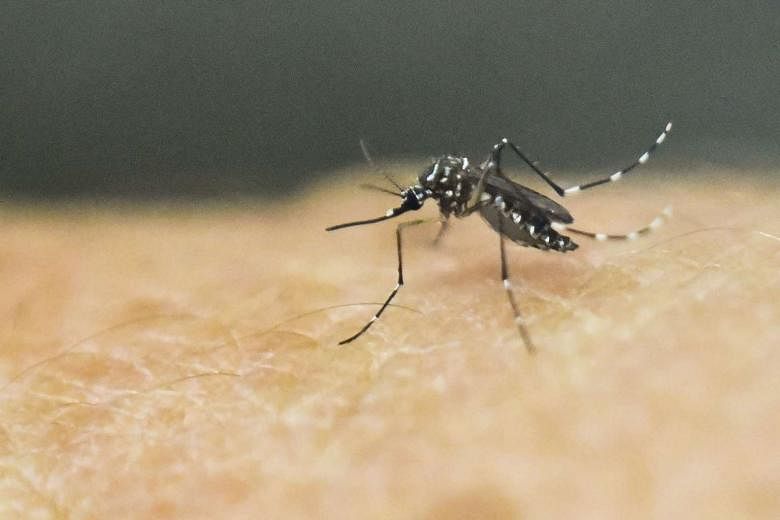MANILA - The Philippines has reported its first case of the mosquito-borne Zika virus linked to thousands of birth defects in Latin America since 2012.
Citing a report from the US Centres for Disease Control (CDC), Health Secretary Janette Garin told reporters on Sunday (March 6) that an American had tested positive for Zika after visiting the Philippines for four weeks in January.
The woman developed symptoms linked to the virus, including fever, rash, muscle pains, and conjunctivitis.
"Currently, we are coordinating with CDC for the profile of the patient, including information on places she visited in the Philippines," Dr Garin said.
The World Health Organisation (WHO) said in December that Zika was "spreading explosively" in the Americas, and that as many as four million people could be infected by the end of 2016.
In February, the WHO declared its spread an international public health emergency, in a rare move that signals the seriousness of the outbreak.
The main worry is over the virus' possible link to microcephaly, a condition that causes babies to be born with unusually small heads and, in the vast majority of cases, damaged brains.
The last confirmed case of Zika in the Philippines was in May 2012, involving a 15-year-old male in Cebu city, 572km south of Manila.
The patient was first thought to have contracted dengue or chikungunya.
He recovered after three weeks, taking only acetaminophen.
A CDC bulletin said earlier that a strain of the virus might have been introduced in the Philippines before 2012, and that it probably remained undetected.
Zika resembles a light case of the flu. It is often so mild that its symptoms can be treated with over-the-counter medication.
Patients infected with Zika seldom go to clinics, and doctors often associate symptoms with other illnesses, usually dengue or chikungunya.
Zika, dengue and chikungunya viruses share the same carrier: the Aedes aegypti mosquito.
CDC bulletins showed Zika infections in the Philippines and Indonesia were detected only after targeted surveillance following outbreaks of dengue or chikungunya, or during long-term studies over specific areas.
Dr Garin said there was no need for measures beyond what the health ministry has in place so far.
"We reiterate that cleanliness is still the key against mosquito-borne diseases. The public is reminded to be vigilant and take precautions in eliminating mosquito breeding places," she said.
Philippine health and Red Cross officials have also advised women who are pregnant or planning to have a child, to avoid travelling to 29 countries affected by the Zika virus linked to thousands of birth defects in the Americas.


